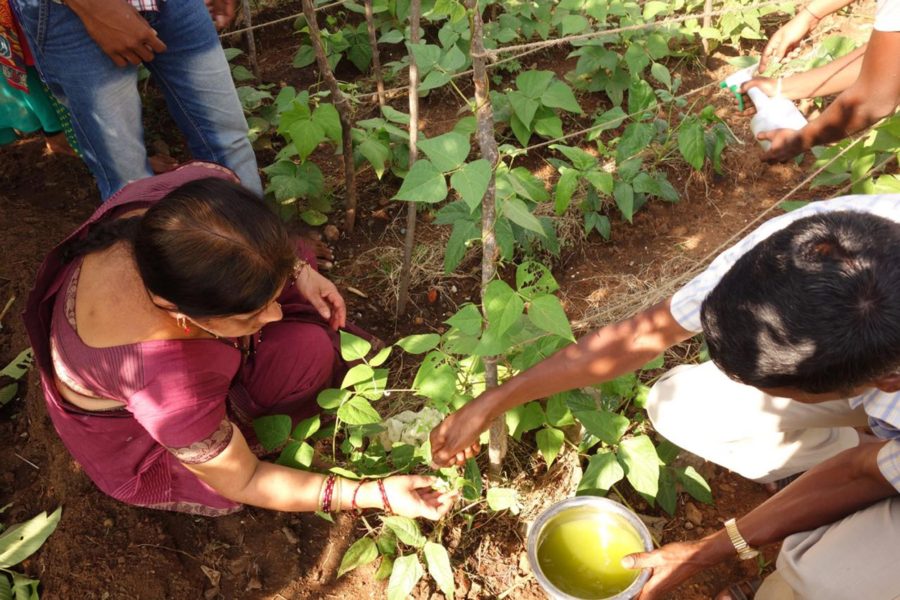[In the News] Farmer suicides: A call to climate action for India
In a recent article by Suresh Babu of the International Food Policy Research Institute, Babu points out that “As both a contributor to climate change and a victim of its impacts, agriculture needs to become climate resilient. This direct connection between climate change and agriculture is perhaps nowhere more apparent than in India, where recent research has shown climate change as the key contributing factor to the suicides of more than 60,000 farmers.”
For WEA, this shocking number and what it reveals about climate change and its deep impacts on smallholder farmers hits close to home. From 2014-2015 alone, farmer suicides across India increased by over 40% — from 5,650 to over 8,000. However, it’s Karnataka State in Southern India, where WEA’s Seeds of Resilience Project is based, that has seen the sharpest jump — from 321 in 2014 to more than 1,300 in 2015, the third-highest among all states.
So, what is the connection between climate change and farmer suicides?

Photo: Vanastree
As many other countries, India has borne the brunt of climate impacts, seeing increased flooding, variability in rainfall, extreme heat, and vulnerability to more severe storms. Especially for small-scale farmers, the risks become clearer, and more dangerous, with each passing year.
Failing to address India’s climate change can spell trouble for many smallholders who continue to depend on rainfed agriculture. To save farmers lives and livelihoods, making Indian agriculture climate-resilient must be a priority next step…
Empowering farmers to become financially independent will prove another key step toward [climate] resilience. Currently, farmers are trapped in a cycle of seeking out loans from high-interest money lenders. By making institutional credit available at affordable rates, farmers can avoid debt traps.
Further complicating the financial prospects of agriculturalists, government compensation policies seem to work against the farmers’ best interests. In a morbid sense, the compensation in the case of death of a farmer is seen as a route for farmers’ families to get out of debt. The money distributed to the farmer’s family is often used to pay off the predatory loans, to keep the farm afloat. This distressing cycle of debt further leaves farmers and their families most vulnerable to future climate-induced shock.
This crisis reinforces the need for community-driven solutions, not just to climate change, but to agricultural development and land ownership as well. WEA’s Seeds of Resilience Project aims to support the sustained organizing and capacity building of small-scale women farmers to preserve traditional agricultural knowledge, promote indigenous seed saving practices, support climate adaptation and mitigation through the cultivation of climate-resilient crops, and further the rights of women farmers.
For more on WEA’s work to support small-scale women farmers in India, visit our Seeds of Resilience Project.
